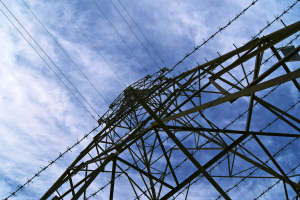A report released by The University of Manchester claims that nuclear power can make a considerable contribution to the reduction of greenhouse gases. But, this contribution will also have a significant negative impact on the environment and natural resources of the country.
Professor Adisa Azapagic of The University of Manchester led the SPRIng research consortium in its study of the social, ethical, environmental and techno-economic sustainability of nuclear generated power for the United Kingdom.
 Power generation in the UK
Power generation in the UK
The consortium discovered that only an expansion of both nuclear and renewable electricity will help meet the carbon emissions targets for the United Kingdom.
The current contribution of nuclear power is around 17% in the United Kingdom and by 2035 it should be doubled to around 35% of the total electricity generation to have a significant impact on greenhouse gas emissions. But, expansion of nuclear power will lead to depletion of the ozone layer, health impacts due to radiation, toxicity and reduction in natural resources.
Renewable electricity will have to provide around 55% of the total electricity required for the nation. The SPRIng report states that if significant reduction in consumption of energy can be achieved then nuclear power will not be necessary for meeting the country’s targets for climate change. But if energy consumption increases then nuclear power is required.
The research states that increasing nuclear power depends on uranium availability and further identification of economically feasible new uranium reserves. It also added that even if a large accident occurred with radiological consequences, nuclear power will still be one among the safe electricity sources.
Carbon taxation and a price of £100 per ton of carbon dioxide will help promote nuclear and other low-carbon electricity options.
Ethical questions remain, the report says, which finds that future generations will not benefit from nuclear power, but will have to suffer the costs and risks of nuclear waste management and decommissioning.
The preferences of individual stakeholders, decision makers and the public will influence the choice for ‘best’ electricity options. The study found that the UK public favored solar, wind and hydro power followed by nuclear power. They did not prefer oil, gas and coal generated power.
A market-led approach run by economics with strict carbon targets and stiff non-compliance penalties can influence the need for nuclear power. But such ideas have to be accepted by the UK public and various stakeholders.